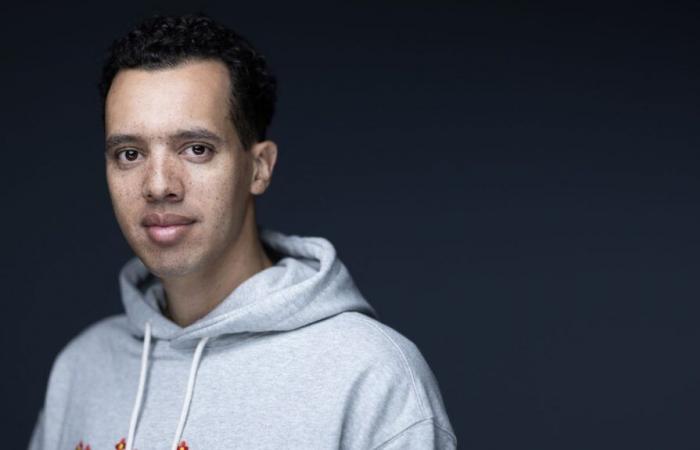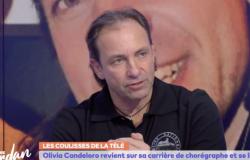The novelist Gaël Faye, who was one of the favorites for the Goncourt, was awarded the Renaudot Prize on Monday, November 4 for his second novel. Jacaranda on the reconstruction of Rwanda after the 1994 genocide.
While in his first novel Small countryGoncourt prize for high school students in 2016 and huge bookstore success, the author took the point of view of a boy who grew up in Burundi, this time the narrator grew up in France, in Versailles, of a French father and a Rwandan mother. This young man, Milan, will discover Kigali, the omnipresence of the memory of the genocide, and members of his family.
It is “a lot of joy, a big surprise”, reacted Gaël Faye at the Drouant restaurant, where the Renaudot and Goncourt prizes are traditionally awarded, awarded Monday to the Franco-Algerian novelist Kamel Daoud for his novel Houris (ed. Gallimard), on “the black decade” in Algeria.
Gaël Faye is an artist with multiple talents, whose work never ceases to return to the wounds of Rwanda. Everything smiles on this young man by the looks, who does not look like his 42 years, and whose large size and ample and precise gestures remind us of a basketball player. A sport that he practiced a lot in his youth. Instead of the orange ball, then a career in finance which he cut short, he preferred the microphone, the mixing board and the pen. Son premier album solo, Pili-Pili on a butter croissantrevealed it in 2013. It will be followed by a Victoire de la musique (stage revelation) in 2018 and another disc, Nasty Mondayin 2020.
In 2016, her first novel, Small country, had reached the final of the Prix Goncourt. He had taken his revenge with the high school students’ Goncourt. In 2024, the second, Jacarandawas one of the favorites of literary prize juries. Readers joined in, not just fans of his music but also fans of contemporary literature. “Success comes from the grace of man. There is such sincerity, such magnetism…”, according to Olivier Nora, the boss of his publishing house, Grasset.
In literary work, the pen is as alert as the themes are serious. Impossible to break away from the genocide which devastated Rwanda, the country of his Tutsi mother, in 1994. “The first time I started singing was during genocide commemorations. I was 15, 16 years old. We were told: write lyrics between two testimonies,” he told AFP in September. “When someone has just told their ordeal, the only thing we can do is come with words of reassurance. This has always been my way of doing things”he added.
On the genocide, Gaël Faye, of French and Rwandan nationality, never misses an opportunity to advise reading, on the one hand, the testimonies of survivors and, on the other hand, the most recent history books. His literature and the lyrics of his songs take another approach to depict this Rwanda where he lives today. They indirectly take the point of view of the traumatized.
Demanding French literary criticism has been mixed on the quality of these novels, their style, their construction. Not about the fit between the author, his subject and his audience. “A well-made literary product”, Or “the young adult reconstituting his childhood makes it much more coherent than it surely was”said of Small country Waiting for Nadeau, a leading online literary magazine. “His text is effective, generous, enveloping. It shows the gaps, but it fills them”judged The World about Jacaranda. The daily estimated that “the language is fluid, but offers no surprises”.
Undoubtedly the literary pen of Gaël Faye, an artist who multiplies the channels of expression, still has areas to explore. “When I arrived at Grasset, I told them: consider me as an author. Not as the rapper who writes novels.”






